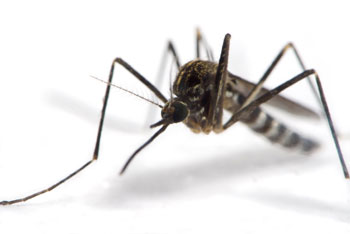Aedes mosquitoes 

A rare case of the Zika virus being transmitted through sex, not a mosquito bite, has been reported in the US.
A
patient infected in Dallas, Texas, is likely to have been infected by
sexual contact, the Centers for Disease Control (CDC) told the BBC.The person had not travelled to infected areas but their partner had returned from Venezuela.
Zika is carried by mosquitoes and has been linked to thousands of babies being born with underdeveloped brains.
It is spreading through the Americas and the World Health Organization (WHO) has declared the disease linked to the virus a global public health emergency.
The "self-deferral" should apply to people returning from Mexico, the Caribbean or Central or South America during the past four weeks, the Red Cross said in a statement.
Elsewhere:
- Two cases of the Zika virus have been confirmed in Australia. Officials said the two Sydney residents had recently returned from the Caribbean.
- Zika has also been found in two unrelated cases in the Republic of Ireland, officials there said. A man and an older woman, who have both recovered, had a history of travelling to a Zika-affected country.
- The UK has announced people will not be able to donate blood for 28 days after returning from a Zika-affected country.
A total of 404 cases have so far been confirmed - up from 270 last week - while 709 cases have been discarded, the country's health ministry said.
The ministry also said 76 infant deaths from microcephaly, either during pregnancy or just after birth, were suspected.
The main way Zika is spread is by mosquitoes.
But if Zika can also spread through sex, then it poses a risk to every country not just those with the Aedes mosquito.
So far, authorities have said sexual transmission is rare, but last year they would have said any case of Zika was rare, too.
This explosive outbreak has caught the world by surprise and many key questions remain unanswered.
Exactly how common or rare is sexual transmission? Can it be spread by the 80% of people who show no symptoms? How long does the virus persist in semen? When is it safe to have sex again?
What should men do after visiting affected countries? Can women also spread the virus through sex?
However, this is not a new HIV/Aids moment. HIV infection is incurable and dramatically shortens lives without daily medication.
Zika infections are short, mild and pose a significant threat only in pregnancy.
Texas has seen seven other Zika cases all related to foreign travel.
But Anne Schuchat, principal deputy director for CDC, said this was the first case it had dealt with involving a "non-traveller".
"We don't believe this was spread through mosquito bites, but we do believe it was spread through a sexual contact."
A statement issued by the CDC said the best way to avoid Zika virus infection was "to prevent mosquito bites and to avoid exposure to semen from someone who has been exposed to Zika".
WHO spokesman Gregory Hartl said the latest development would be discussed at its daily meeting later on Wednesday.
"We certainly understand the concern," he told Reuters news agency. "This needs to be investigated to understand the conditions and how often or likely sexual transmission is, and whether or not other body fluids are implicated".
It is not the first known case of sexual transmission in the US. A doctor from Colorado returning from Africa in 2008 is thought to have passed on the infection to his wife. There was a case in 2013 in French Polynesia, according to the CDC website.
The CDC recommends that pregnant women avoid travel to more than two dozen countries with Zika outbreaks, mostly in the Caribbean and Latin America, including Venezuela.
Brazilian President Dilma Rousseff said her government was focused on eradicating the mosquito that transmits the virus and has pledged considerable funds to do so.
WHO's Europe Director Zsuzsanna Jakab urged countries to act in a co-ordinated way to control the mosquitoes, inform people about the risks, keep a check on cases, step up research to understand the disease and develop vaccines.

No comments:
Post a Comment